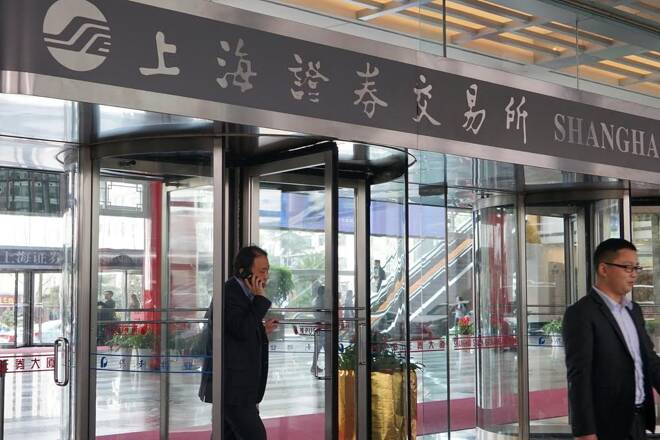Advertisement
Advertisement
Asia-Pacific Shares Mostly Higher; Nikkei Tumbles as Japan Considers Declaring State of Emergency for Tokyo
By:
Activity in China’s factory sector rose in December as the world’s second-largest economy sustained its recovery to pre-pandemic levels.
The major Asia-Pacific stock indexes rose on the first day of trading in the new year, although Japan’s Nikkei 225 Index shed early gains, falling nearly 0.7% after Prime Minister Yoshihide Suga confirmed the government was considering a state of emergency for Tokyo and three surrounding prefectures as the coronavirus spreads.
Despite the optimism over vaccines, gains may have been limited as investors are still sounding caution over the path of the virus, which continues to spread midst the discovery of a new strain.
In the cash market, Japan’s Nikkei 225 Index settled at 27258.38 down 185.79 or -0.68. Hong Kong’s Hang Seng Index finished at 27472.81, up 241.68 or +0.89 and South Korea’s KOSPI Index closed at 2944.45, up 70.98 or +2.47%.
China’s Shanghai Index settled at 3502.96, up 29.89 or +0.86% and Australia’s S&P/ASX 200 Index finished at 6684.20, up 97.10 or +1.47%.
Japan Could Declare 1-month Virus Emergency for Tokyo Area This Week
Japan plans to declare another state of emergency in Tokyo and three neighboring prefectures, possibly to take effect for about one month from Saturday, to curb the spread of the coronavirus as infections have continued rising, government officials said Monday.
The plan comes after Prime Minister Yoshihide Suga touched on the need to consider such a special measure, following one put in place in April last year, as the greater Tokyo area is responsible for about half of the some 3,000 new daily cases reported in recent weeks.
But Suga hinted in a New Year’s press conference that social and economic activities are unlikely to be halted across the board this time, saying the state of emergency should be implemented “in a limited and focused manner.”
The officials said the measure is likely to focus on stemming the risk of infections at restaurants and bars, requesting them to close earlier and people staying home as much as possible, especially in the evenings, but no school closures are planned.
China’s Factory Activity Growth Slows, Higher Costs Hit Firms
Activity in China’s factory sector rose in December as the world’s second-largest economy sustained its recovery to pre-pandemic levels, a business survey showed on Monday, however, increasing cost pressures slowed the pace of expansion.
The Caixin/Markit Manufacturing Purchasing Managers’ Index (PMI) fell to 53.0 from November’s 54.9, with the gauge staying well above the 50-level that separates growth from contraction but missing expectations and easing to the softest pace in three months. Analysts polled by Reuters had forecast the headline would slip to 54.8.
“The negative impact of the pandemic on the domestic economy further subsided and the manufacturing industry continued to recover. Both the supply and demand sides continued to improve. Overseas demand also steadily increased,” Wang Zhe, senior economist at Caixin Insight Group, wrote in a note accompanying the survey release.
For a look at all of today’s economic events, check out our economic calendar.
About the Author
James Hyerczykauthor
James Hyerczyk is a U.S. based seasoned technical analyst and educator with over 40 years of experience in market analysis and trading, specializing in chart patterns and price movement. He is the author of two books on technical analysis and has a background in both futures and stock markets.
Advertisement
